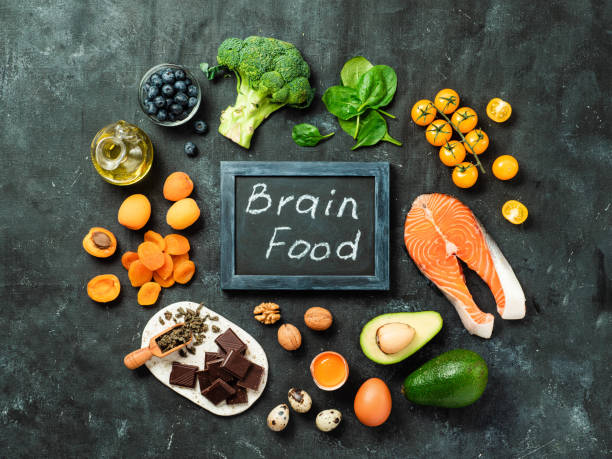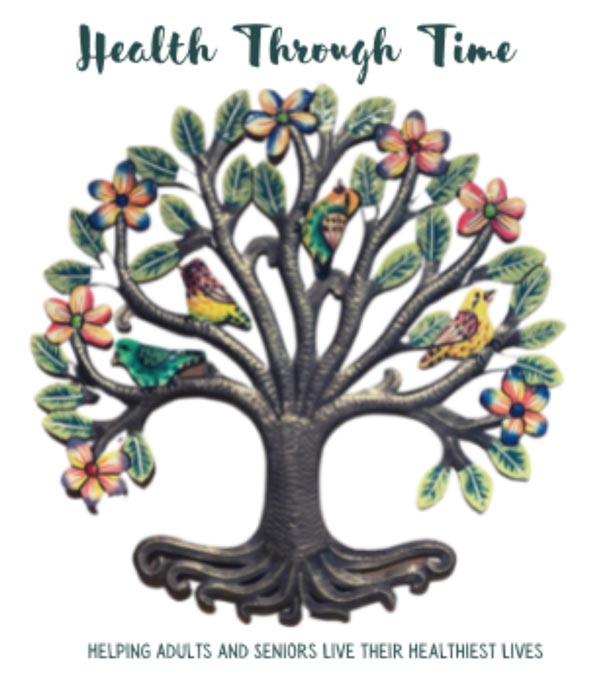Want to Improve Your Memory? Eat Real Food!
Posted by mjamieson on Nov 12, 2022 in Brain Health, Health Blog | Comments Off on Want to Improve Your Memory? Eat Real Food!
Concerned About Memory Loss?
Since the onset of the Covid-19 pandemic, the number of individuals asking me if Prevagen is effective to protect their memory has increased. I find the timing of this increased concern about memory curious. Generally, individuals in their 70’s and 80’s are more likely to ask about this very popular supplement. Now it’s we 60 somethings who are increasingly concerned about memory loss.
Inquiring Minds Want to Know!
It was interesting as I was mulling this over; why now? Why is the interest so ramped up in the younger group? Is the stress of living through a pandemic affecting our mental capacities in ways that ramp up our fear that we are experiencing cognitive decline? I happened across an article, which I cannot cite, because, ironically, I cannot remember where I read it! My hypothesis was confirmed that the stress of the pandemic could certainly be affecting our memory, our clarity, and focus.
Stress and Brain Function
Chronic stress does affect our brain functioning. When we are under prolonged stress cortisol production increases, decreasing our focus and impulse control. Since the start of the pandemic, many of us have turned to comfort foods to cope. Unfortunately, many of these comfort foods contain neurotoxins, high sugar content, and empty calories. Empty calories do nothing to support our brain health and memory.
Brain Health Supplements. Show Me the Science!
First the Prevagen question. Does Prevagen really help prevent memory loss or sharpen your memory? Probably not. A little background here. Prevagen, the most well-known brain health supplement, is made from jelly fish. Jelly fish contain a substance apoaequorin which is purported to be good for your brain health! Well, here is the problem. Apoaequorin cannot penetrate the blood brain barrier so essentially can have no benefit for your brain.
The makers of Prevagen, Quincy Bioscience, created their own study “The Madison Memory Study.” This study was created by Quincy Bioscience. This study was never peer reviewed, and the data was manipulated through fuzzy math as supposed proof that Prevagen is effective.
In 2017 the Federal Trade Commission (FTC) and the State of New York charged Quincy Bioscience with false marketing. They found that the makers of Prevagen clearly and intentionally misrepresented the “scientific” information. Yet, they continue to advertise. Quincy Bioscience has removed the bogus information referencing their study, however, they continue to prey on the fears of aging Americans while making millions of dollars.
Prevagen comes in 10, 20, and 40 milligram doses which range from $39.00 to $109 a month. Those giving testimonials on those nightly commercials may truly believe they have benefited. My guess would be that they are experiencing a very expensive placebo effect. Apoaequorin is not able to penetrate the blood brain barrier; efficacy is simply not possible!
More Research is Needed!
Supplements touted to improve memory and brain health have been studied. Researchers found most of these supplements do not contain what is listed on the label. There are 650 products marketed to support brain health. ONLY twelve were studied, 67% had at least one of the listed ingredients in the supplement. An astounding 83% had ingredients that were not listed. Many of these ingredients can cause harmful side effects. The Crawford et. al study found about 22% of individuals experience side effects from these unregulated supplements.
As of 2020 the supplement business has reached $40 billion dollars!!! That’s a lot of money being spent for unproven, potentially dangerous, and most likely ineffective supplements.
Better Late Than Never! The FDA Takes Action
In response to concerns about ingredients in unregulated brain health supplements the Food and Drug Administration (FDA) ramped up their efforts in 2019 to provide oversight. Warning letters have been issued to those making false claims about preventing or treating Alzheimer’s.
See Your Doctor
If you are concerned about memory loss see your physician. Individuals are not seeking medical advice or treatment soon enough. Precious time can be lost trying bogus supplements when those who are experiencing early signs of dementia could benefit from medications that have been demonstrated to slow the progression of Alzheimer’s. Currently there are no treatments available which can reverse or prevent Alzheimer’s or other types of dementia.
Healthy Food! Healthy Brain!
Finally, what can you do to protect your brain health? Use that money you would spend on a supplement to purchase real food! Eat salmon! Astaxanthin , found in salmon, is a powerful antioxidant which has been proven to cross the blood brain barrier. Astanxanthin has been scientifically shown to decrease inflammation and provides antioxidant effects to protect your brain. Astaxanthin gives salmon that rich pink hue, the brighter the pink the healthier the fish! Eat salmon twice a week and you are on the fast track to a healthier brain!
Anthocyanin, a flavonoid found in foods with blue, red, purple, or black hues, also has the ability to cross the blood brain barrier and improve your brain health. Keep eating those blueberries, blackberries, and red cabbage!
I’ve said it before, and I’ll say it again, eat REAL food. Studies have shown that following Mediterranean style diets can reduce the incidence of cognitive decline by as much as 53%. Diets high in fish are more effective than taking a fish oil supplement. It is believed that eating fish is more effective due to higher B12, selenium, and Vitamin D content. In addition to your fish, add olive oil to your salad, eat avocados, fruits, nuts, whole grains, and my personal favorite a glass of red wine!
Would you like to learn more about healthy brain foods? Neurotoxins in foods to avoid? Health Through Time can help you and your family learn more about keeping your brain healthy and guide you in developing healthy meal plans that support brain health. For more information, please contact info@healththroughtime.com
Disclaimer: Health Through Time Nurse Consulting and Coaching, LLC does not diagnose, treat, or offer advice. You should always check with your physician before beginning any diet plan. This information is provided solely as education so that you may partner with your physician to devise the best plan to meet your individual needs.
Sources
Budson, A. (2020) What to eat to reduce your risk of alzheimer’s disease. Retrieved from https://www.health.harvard.edu/blog/what-to-eat-to-reduce-your-risk-of-alzheimers-disease-2020050819774
Crawford, C., Boyd, C., Avula, B. et al. (2020). A public health issue: dietary supplements promoted for brain health and cognitive performance. Retrieved from https://www.ncbi.nlm.nih.gov/pmc/articles/PMC7153641/
Jennings, A., Cunnane, S., Minnihane, A (2020). Can nutrition support healthy cognitive aging and reduce dementia risk. Retrieved from https://www.bmj.com/content/369/bmj.m2269
Federal Trade Commission (2019) https://www.ftc.gov/system/files/documents/cases/quincy_bioscience_opinion_and_order.pdf
Marvar, A. (2020). The prevagen settlement and the wild west of brain health supplements. https://www.beingpatient.com/prevagen-settlement/
Pearson, Anthony (2019) Jellyfish memory supplement prevagen called ‘clear cut fraud.’ Retrieved from https://www.medpagetoday.com/blogs/skeptical-cardiologist/80321
Sears, W., Sears, M. (2010) Prime Time Health. A scientifically proven plan for feeling young and living longer. Little, Brown Spark Hachette Book Group.
